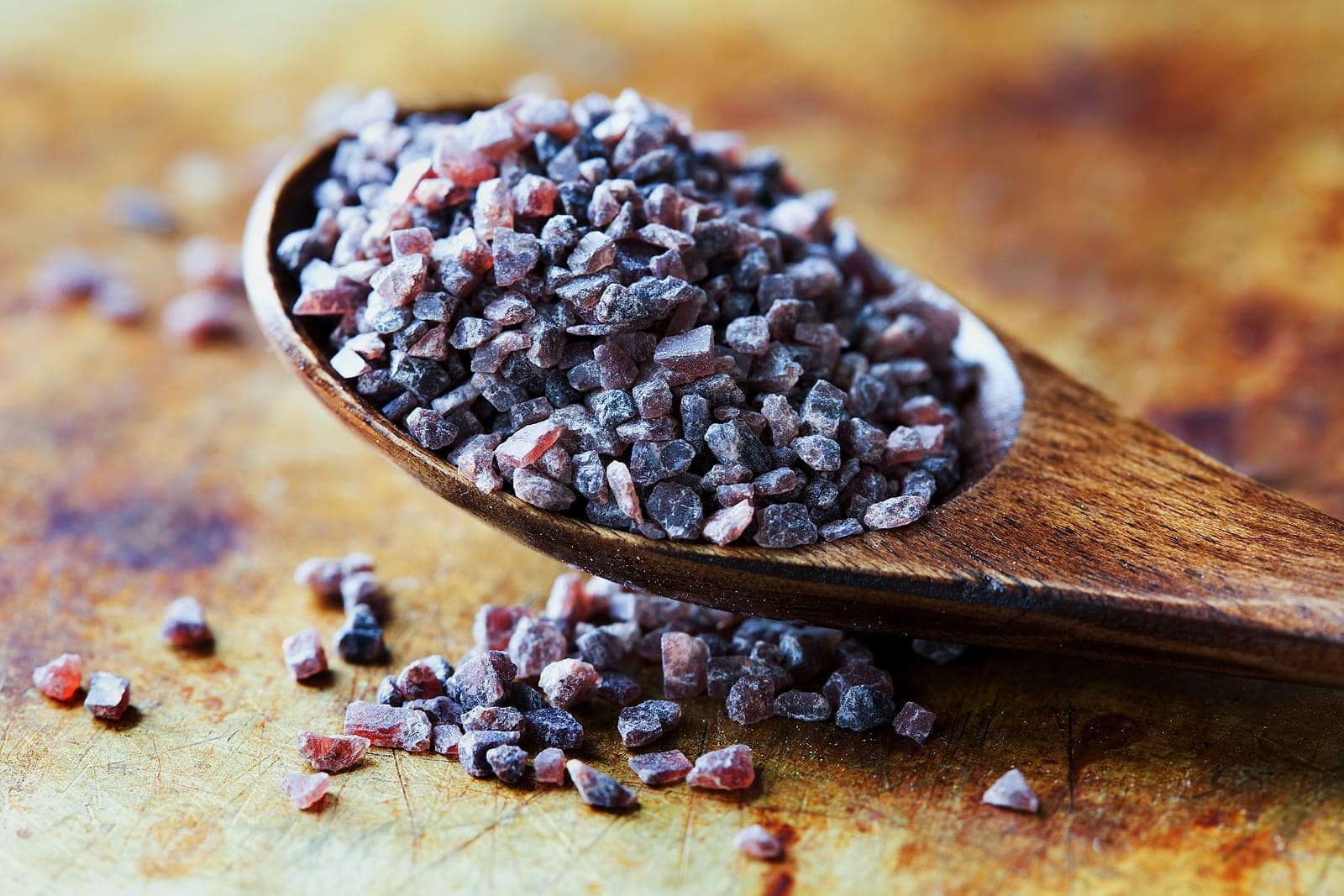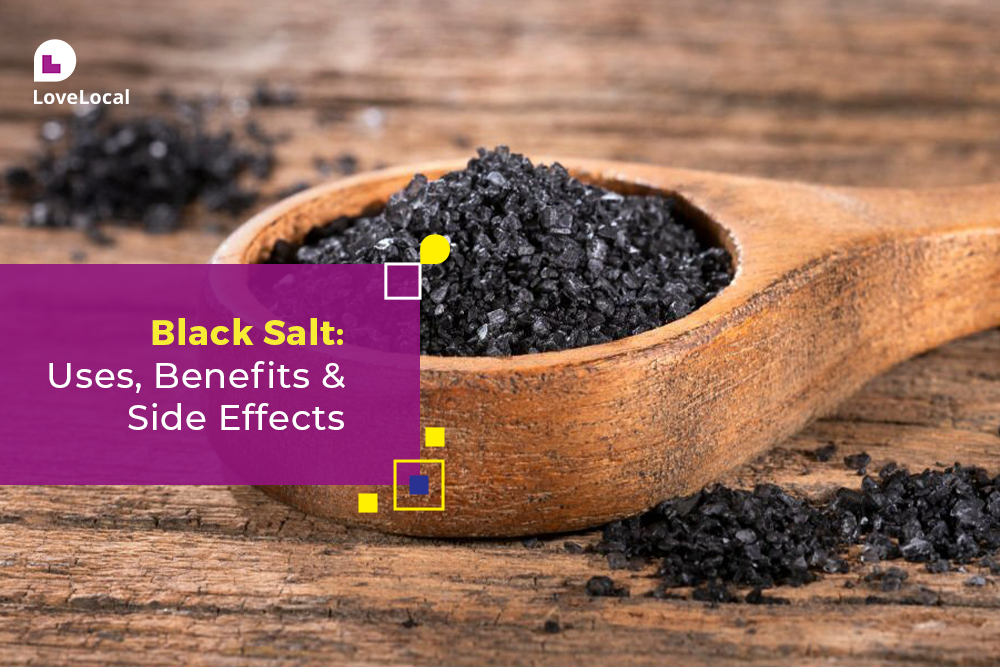Salt is a staple in most kitchens, but not all salts are created equal. One unique variety that has been gaining attention in recent years is black salt. Also known as Kala Namak, black salt is a condiment with a distinct flavor and numerous potential health benefits.
The Origins of Black Salt
Black salt is not actually black in color but rather pinkish or brownish, and it’s harvested in various parts of the world, including India, Pakistan, and Bangladesh. It has been a staple in Ayurvedic medicine for centuries and is recognized for its medicinal properties. Black salt is usually extracted from volcanic mines and is created through a unique process that involves heating common salt with various herbs and spices, which gives it its distinctive aroma and flavor.

The important nutritional value of black salt
| Nutrient | Amount per 100g (approx.) |
| Calories | 0 (it’s almost calorie-free) |
| Sodium | 39,100 mg |
| Potassium | 26 mg |
| Iron | 105 mg |
| Calcium | 9 mg |
| Magnesium | 31 mg |
| Sulfur compounds | Varies |
| Iodine | Negligible |
| Dietary Fiber | Negligible |
Uses of Black Salt
1. Culinary Uses:
Black salt is a popular ingredient in many Indian dishes, particularly in chaats, chutneys, and savory snacks. It is known for its unique sulfurous and tangy flavor, which is often likened to boiled eggs. This makes it an ideal replacement for vegans and vegetarians looking for an eggy taste in their dishes.
2. Ayurvedic Medicine:
In traditional Ayurvedic medicine, black salt is used for its therapeutic properties. It is believed to aid digestion, relieve gas and bloating, and even help in the treatment of various health conditions.
3. Laxative:
Black salt is also known for its mild laxative effect. It can help relieve constipation and promote regular bowel movements when consumed in moderation.
4. Skin Benefits:
Some people use black salt in skincare routines, claiming it can help alleviate skin issues like acne and rashes. However, it’s essential to be cautious when using it on your skin, as it may cause irritation in some individuals.

Health Benefits of Black Salt
1. Digestive Aid:
Black salt is well-regarded for its digestive properties. It can stimulate the release of digestive enzymes, improving digestion and reducing acidity. Drinking black salt and lemon water can help stimulate the digestive system and help with weight loss.
2. Relief from Acidity:
Its alkaline nature may help neutralize excess stomach acid and provide relief from heartburn and acidity. making it a suitable remedy for individuals with gastrointestinal discomfort.
3. Blood Pressure Control:
Black salt contains lower sodium levels compared to regular table salt. This makes it a good choice for individuals with high blood pressure who need to limit their sodium intake.
4. Alleviates Muscle Cramps:
Black salt water is beneficial to get potassium, which can help prevent and alleviate muscle cramps.
5. Respiratory Health:
In Ayurvedic medicine, black salt is believed to have beneficial effects on respiratory conditions like bronchitis, and allergies. Consuming black salt and lemon water may provide some relief for individuals with respiratory issues like asthma.
6. Enhanced Mineral Intake:
It contains several essential minerals, including iron, which can help combat anemia and maintain overall health.
Black Salt Side Effects and Precautions
1. High Sodium Content:
While black salt contains less sodium compared to common table salt, it is not recommended for individuals on a strict low-sodium diet. Overconsumption can still lead to health issues, particularly in those with hypertension.
2. Iodine Deficiency:
Black salt is not a reliable source of iodine, which is essential for thyroid function. Individuals who predominantly use black salt should ensure they are getting enough iodine from other sources.
3. Potential Allergies:
Some individuals may be sensitive or allergic to black salt. It’s advised to start with small amounts to gauge your body’s reaction.
4. Medication Interactions:
If you are taking medications, particularly those related to blood pressure or heart conditions, consult a healthcare professional before making significant changes to your salt intake.
Precautions
Moderation: The key to using black salt safely and reaping its potential benefits is moderation. It should be used as a flavor enhancer in your recipes rather than the main source of salt in your diet.
Conclusion
Black salt, with its unique flavor and potential health benefits, is a versatile ingredient that has been cherished in Ayurvedic medicine and South Asian culinary traditions for centuries. While it can provide relief from digestive discomfort, respiratory issues, and even serve as a vegan egg substitute, it’s crucial to use it in moderation and be aware of any potential side effects or allergies.
As with any dietary change, it’s advisable to consult a healthcare professional or nutritionist before incorporating black salt into your daily routine, especially if you have specific health concerns or dietary restrictions. Black salt can undoubtedly add a distinct flavor to your dishes and bring a touch of Ayurvedic wisdom to your kitchen, but understanding its uses, benefits, side effects, and precautions is the key to harnessing its potential in a healthy and balanced way.
Are you in search of a place to purchase black salt or sea salt? The recommended app for this purpose is Lovelocal.



